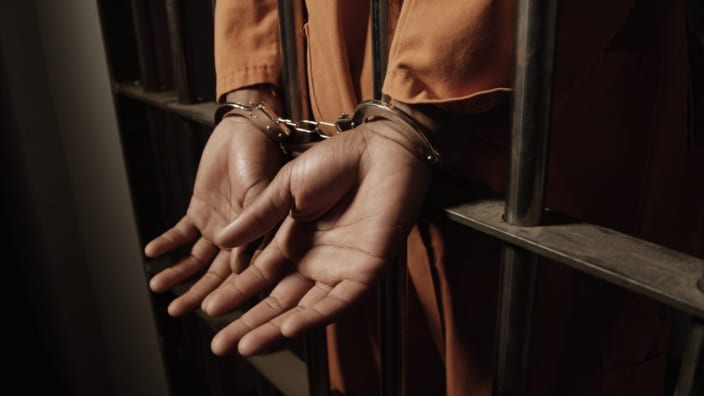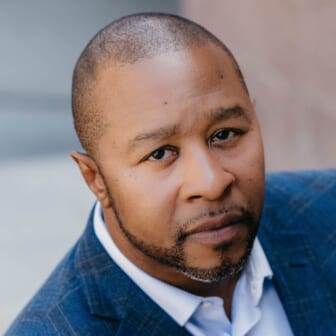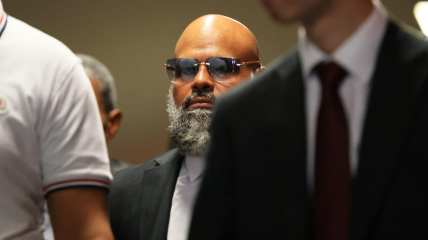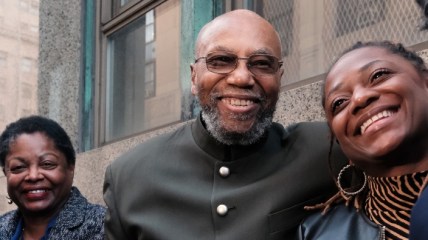Can there be justice for the wrongly convicted?
OPINION: If the federal government wants to deliver on the promises of criminal justice reform, then it must create conviction integrity units that acknowledge the reality of wrongful convictions and honor their ethical duty to seek justice.

Editor’s note: The following article is an op-ed, and the views expressed are the author’s own. Read more opinions on theGrio.
The recent reversal of the 22-year-old conviction of Adnan Syed, the subject of the popular podcast “Serial,” is evidence of the progress this country has made in correcting wrongful convictions. Still, draconian post-conviction laws—and the lack of federal leadership—keep innocent men and women incarcerated. As we approach International Wrongful Conviction Day on Oct. 2, we must demand that our federal government deliver on its promises of criminal justice reform. Aggressive federal conviction integrity units (CIUs) are a great start.
According to the National Registry of Exonerations, since 1989, there have been 3,249 known exonerations. I account for one. At the age of 17, I was wrongly convicted and spent nearly a decade in prison before the Wisconsin Innocence Project assisted in reversing my conviction. I became an attorney to help others like me—innocent and behind bars.
For the past five years, I have been working through my organization, Life After Justice, to free Terrence Richardson and Ferrone Claiborne, presently serving life in prison despite a federal jury acquitting them of the murder used to enhance their drug distribution sentences despite a lack of any physical evidence and despite evidence that the police withheld critical eyewitness identification of another suspect from both the defense and the prosecution. Because the Eastern District of Virginia, where Richardson and Claiborne were tried and convicted, lacks a CIU, our litigation has focused on reversing the underlying state convictions that the court concluded supported the egregious sentence enhancement.
Under Attorney General Mark Herring, the Virginia CIU conducted nearly a year of investigation and review of the case and agreed that Richardson proved his innocence. But then Herring lost his bid for reelection, and Jason Miyares, his newly elected successor, reversed Herring’s work.
In stark contrast to the courage and integrity of the Baltimore prosecutor’s office and Baltimore Circuit Court Judge Melissa Phinn that led to Syed’s release, Miyares fired the entire CIU staff and decided that his position as attorney general empowered him to ignore the 2020 changes to the actual innocence statutes he voted against as a legislator. Without any new substantive evidence and in less than one month of reviewing the case, Miyares filed a “supplemental” pleading reversing the Commonwealth’s position in Richardson’s case.
Eviscerating centuries of law that prevents litigants—even prosecutors—from “playing fast and loose” with their legal positions, the Virginia Court of Appeals sided with Attorney General Miyares. It held that Richardson did not do enough to find the then 9 or 10-year-old child who identified another suspect. The Court of Appeal’s decision not only had no basis in fact—the record is unclear as to how much effort was made to locate this witness—but it lacked any basis in logic: How could finding a child witness lead to uncovering the identification documents law enforcement willfully concealed? The court’s ruling ignored constitutional precedent prohibiting such police deception. After the court denied our petition for rehearing, notwithstanding a five-judge dissent, we appealed.
The court’s ruling demonstrates the power prosecutors have in these post-conviction proceedings. In fact, there is not a single case in Virginia where the courts denied a writ of innocence that the attorney general’s office agreed should issue. Prosecutors who understand that their job is not to win a case but to ensure both the accuser and the accused justice can affect real, positive change in our flawed system. And CIUs can help yield that change.
There are over 90 state CIUs. But with only one federal unit (in the District of Columbia), there is no policy leader to demonstrate and encourage how to ensure conviction integrity. The D.C. CIU could be that leader, showing other U.S. attorneys’ offices methods and policies that free the innocent. Instead, over the unit’s eight years of life, there have been no exonerations much less the strides in leadership one would expect from our nation’s capital.
Errors will always exist in our criminal justice system. An estimated 2 to 5 percent of the nearly 2 million incarcerated people—40,000 to 100,000 prisoners—are wrongfully convicted in state and federal court. We need a way to remedy and minimize these cases efficiently and effectively. If the federal government wants to deliver on the promises of criminal justice reform, then it must create CIUs that acknowledge the reality of wrongful convictions and honor their ethical duty to seek justice, not merely preserve finality.
On Oct. 3, a clemency petition for Terrence and Ferrone will be on President Biden’s desk. Justice should not depend on the political whims of elected officials or the desire to win above all else. Justice needs to be swift and equal for all and led and encouraged by our federal government.

Jarrett M. Adams is a top defense and civil rights attorney and the author of “REDEEMING JUSTICE: From Defendant to Defender, My Fight for Equity on Both Sides of a Broken System” and co-founder of Life After Justice, a nonprofit dedicated to preventing wrongful convictions and building an ecosystem of support and empowerment for exonerees.
TheGrio is FREE on your TV via Apple TV, Amazon Fire, Roku, and Android TV. Please download theGrio mobile apps today!



